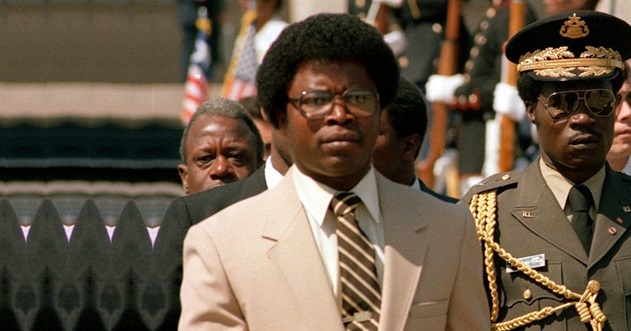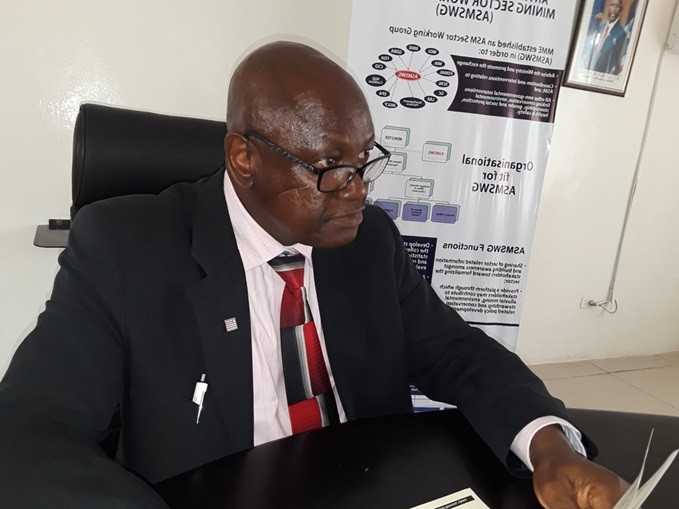LIBERIA – President Samuel Kanyon Doe was killed on this date by Independent National Patriotic Front leader Prince Johnson and his rebel forces in 1990.
At the end of the Cold War, his previously unwavering support from the US after a 1980 Coup evaporated and, as Liberia erupted into civil war, Doe was left vulnerable.
And nine months into the conflict on 9 September 1990, Doe was captured on a visit to the headquarters of ECOWAS Monitoring Group (ECOMOG) in Monrovia at the Freeport Port of Monrovia.
Hours later, he was dead, though Liberia’s civil war would continue for another 13 long years. In his last hours, Doe was stripped to his underwear, interrogated on film, and his ear was sliced off. Rebel leader Prince Johnson nonchalantly presided over the affair.
When a 28-year-old Master Sergeant took power in 1980, he set in motion a series of events that reverberates in Liberia to this day.
In 1980, Samuel K. Doe, a 28-year-old Master Sergeant, assumed power in Liberia in a blaze of glory. In a surprise night-time attack on the Executive Mansion overlooking the Atlantic Ocean, Doe and his accomplices brutally murdered President William R. Tolbert Jr, ending 133 years of rule by black American settlers and their descendants (known as Americo-Liberians).
Having discarded with Tolbert, Doe became Liberia’s first president of “exclusive indigenous heritage”.
In the subsequent decade, President Doe inflamed ethnic politics and eked out a suspiciously close victory in the 1985 elections, before he met an even less dignified end than his predecessor.
Today, exactly 32 years after Samuel Doe’s bloody death, his legacy continues to reverberate in Liberia. Prince Johnson, for instance, is today a Liberian Senator, while a range of actors tied to Doe’s overthrow, including current President Ellen Johnson Sirleaf, is a former president.
Doe set in motion a chain of events that continue to make their impact felt across the nation he once led.
A tenuous reign
Doe came to power in 1980 by virtue of being the highest-ranking of the coup members and began his reign in brutal fashion. Ten days after President Tolbert met his brutal end, thirteen of the most senior officials of the Tolbert government were stripped down to their underwear and publicly executed on a Monrovia beach.
Doe’s new government briefly flirted with Libya, before aligning firmly with the US. This position was rewarded with massive foreign assistance from the administration of President Ronald Reagan and a state visit to the White House in 1982. Furthermore, until 1985, Liberia was the largest per capita recipient of US aid in sub-Saharan Africa, receiving more assistance from the US in 1981-1985 than over the entire previous century – though by the time rebels Charles Taylor and Prince Johnson moved to overthrow Doe at the twilight of the Cold War, this support had evaporated.
Before that, however, Doe won fraudulent elections in October 1985 and then, just a month later, faced a major coup attempt led by a former comrade. Doe survived the failed overthrow, but this tumultuous period caused domestic political calculations to change greatly. The army quelled an uprising soon after and proceeded to launch reprisals and perpetrate human rights violations against the Gio ethnic group, which was seen as widely supporting the coup. By 1990, forces under Doe were committing ever greater atrocities and primarily consisted of members of his own Krahn ethnic group.
Doe’s decade-long rule is often remembered for these atrocities, but he also has some defenders.







